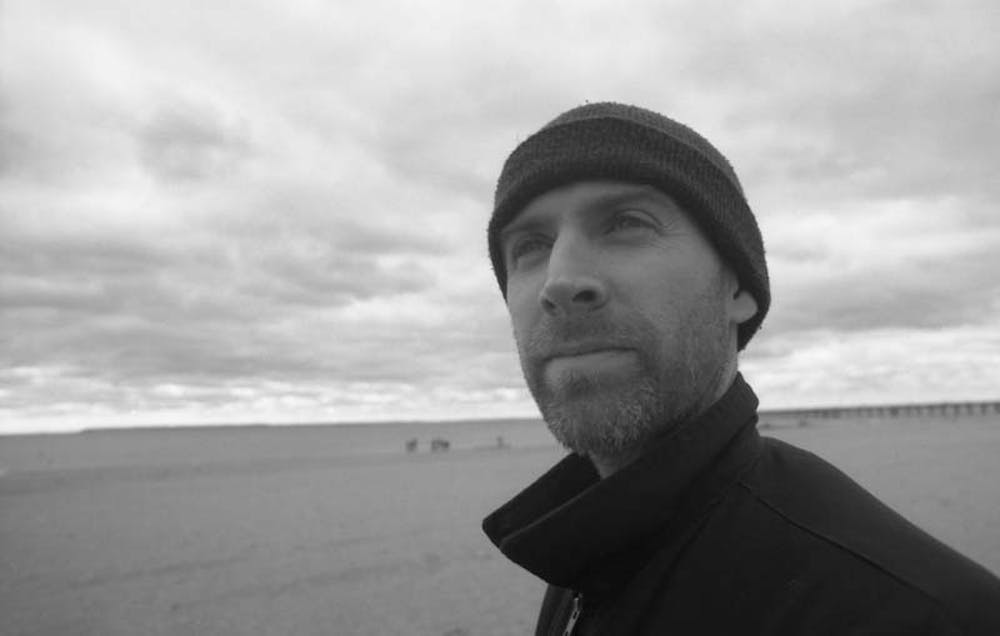What do you do after playing in one of the greatest punk bands of all time? Over the course of 15 years, Fugazi became an underground legend both for its unique sound and rigorous code of professional ethics — but when the band went on hiatus in 2002, bassist Joe Lally was faced with an uncertain future. After brief stints in the bands Decahedron and Ataxia (the latter a one-shot collaboration with Red Hot Chili Peppers’ John Frusciante), as well as the birth and demise of his label Tolotta Records, Lally struck out on his own as a solo artist.
“Forcing myself to get out there on my own was not the easiest thing to do,” Lally said, “but it’s something I enjoy doing.”
Currently living in Italy with his family, Lally has returned to tour the northeastern quarter of the United States (from Chicago to Baltimore) throughout the rest of May, including a performance on Monday, May 19 at Bloomington’s Art Hospital. And despite having already released two positively reviewed solo albums, the bassist sees his music very much as a work in progress.
Fugazi’s long-term break, if not official dissolution, has meant that Lally has had to craft his own approach to songwriting. This process has been shaped both by his individual preferences (his songs evince a particularly strong emphasis on groove and rhythm, for example) and by pragmatic considerations.
“Fugazi always got all the music out, then the singing went over the final product,” he said. “Since there isn’t a band playing with me, it might be that a bass line comes first, or just as often lyrics can come first or a melody — then it is rather a different thing to be putting the music to that.”
For his first album, 2006’s There to Here, Lally wrote the music largely on his own, first performing his songs with other people only during recording — while his second album, 2007’s Nothing Is Underrated, was informed by his experiences performing live while on tour with supporting musicians. However, for his next record, he’s seeking an even closer partnership.
“I wish I had someone to collaborate with,” he said, and expressed his desire to set up a permanent supporting band.
This has been complicated, though, by the expense and challenge of forging a group that can work together on a transatlantic basis. It’s not only tough to afford the cost of flying a trio across the ocean, but difficult to find members who aren’t tied up with commitments to other acts as well. The result of this has been the rotation of supporting musicians according to who’s available and where. For instance, while Lally’s last U.S. tour saw support from drummer Ricardo Lagomasino of Seattle (formerly Philadelphia) band Capillary Action and Italian guitarist Andrea Moscianese, his current tour will be backed by Lagomasino and guitarist Jonathan Morris (stage name Jonathan Matis) of Washington, D.C.’s DC Improvisers Collective.
But while this system of rotating band members has challenged Lally’s songwriting, it has also pushed him to create songs that can be adapted to the talents of his supporting musicians.
“Over the last few years, Joe has been playing with lots of different people, all over the world,” Morris said. “He’s had the chance to work out his songs in all of these different contexts with so many contributors. It’s both exciting and a little intimidating to step into those songs now.”
This view was echoed by Lagomasino: “Each member put a lot of their own character into the music,” he said. “But if it’s anything like the previous tours it should definitely be good.”
And while Lally has worked a great deal with Lagomasino, the bassist expressed a hope that whoever the third (non-drums) member of the band happens to be at any given time, he/she will bring a new element to the mix. Lally went on to say that the third musician ought to bring a knack for experimentation to give him and the music a chance to evolve.
Indeed, to an extent, Lally seems more concerned with the future than the past or present. Asked whether he heard Fugazi’s legacy in the music of current acts, he confessed that he has not paid them much attention.
“I don’t think about the legacy of Fugazi in those terms,” he said. “Still, traveling around, you meet people who are younger who want to tell me that my bass playing influenced them to play or how much the band meant to them. That’s an important and wonderful thing.”
This reaction comes down to Lally’s view of music as a force for uniting people through a sense of shared community.
“It’s more about not being separate,” he said. “There’s no sense of separation anymore. That’s the wonderful thing about music."
All your bass are belong to us
Former Fugazi bassist to work on third collaborative record

Get stories like this in your inbox
Subscribe





